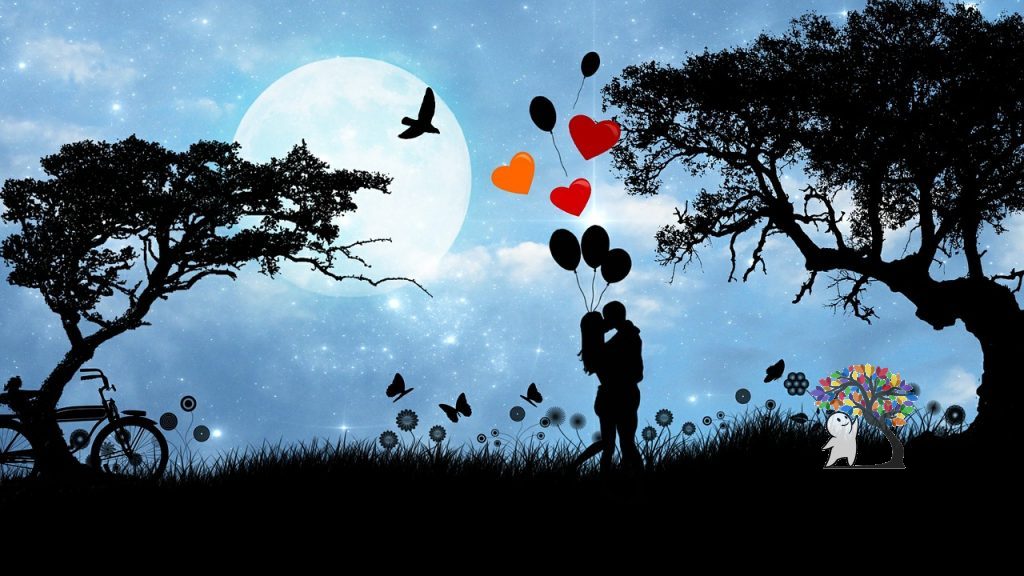10 Signs That You May Have Found the ‘Love of Your Life’ (According to Research!)


Disclaimer: This article is for educational purposes only and does not mean that signs like these mean indefinitely that somebody is or is not the love of your life. These examples were selected as they are supported by research and have been mutually agreed in the articles listed in the references section at the end.
We hear and see it all the time in films and read about the notion of love in the classic romance novels. The same narrative appears to exist; these ideas of finding “The One” or the “The Love of your Life”.
Falling in love is not always easy for some; it is important to state that there is no right or wrong way of knowing whether you are in love or when you may have found ‘the love of your life’. The chances of finding the ‘one’ among 7.6 billion people on the Earth may seem like improbable and farfetched notion but the fact remains that some people are just more suited to each other than others. So how do we truly know when we have found that special person whom we want to be with for the rest of our lives?
With that in mind, here are 10 signs that may mean that you have found the love of your life.

Your Brain Experiences Changes
Yes, you heard it right! When you are in love and feel like you have found ‘the love of your life’, you will experience biochemical reactions!
A study carried out by researchers in 2005 at New York Stony Brook University, suggests that altered biochemical reactions take place in your brain when you experience real love and genuine attachment. (Aron et al, 2005).
Furthermore, when you think about ‘The One’, you will experience a surge of dopamine (the happy neurotransmitter). So, if you are feeling a rush of happy hormones when you are thinking about or around your partner, then this could be a good indicator that you may have potentially found the one.
Your Pronouns May Change
Ever been asked to attend an event or RSVP as a couple? How you respond makes a difference.
In 2002, psychologists at the University of Texas, found in their study that those who feel deeply connected to their significant other, are more likely to use plural pronouns such as ‘us’ and ‘we’ rather than singular ‘me’ or ‘I’ when in conversations or when responding to others. If you notice an increased use of these pronouns, this could indicate a deeper connection with your partner.
They Are Willing to Fight For Your Relationship
As William Shakespeare once said; ‘The course of true love never did run smooth.’ Research psychologist Luis Rubén de Borbón observes that what sets ‘The One’ apart from the rest, is a willingness to fight to the success of the relationship (de Borbón, 2015). Relationships are rarely without their difficulties, however, if you can work through relationship issues and repair the cracks, this shows both maturity and willingness to develop the relationship.

They Show a Willingness to Compromise in the Relationship
A 2015 study carried out by psychologists at Kobe University in Japan, found that a willingness to make certain sacrifices in the relationship was crucial for success (Yamaguchi et al., 2015). Relationships where this kind of behaviour was absent or infrequent by either party, were less likely to go the distance. If you find that you or your partner are happy to sacrifice and compromise to ensure a successful relationship without sacrificing your own morals or valuers, then this could mean that they are ‘The One’ for you.
They Support You
According to the psychological researcher Dr. John Gottman, supporting each other’s ‘life dreams’, including your long-term goals and ambitions, is a key component of a healthy and lasting relationship. For Gottman, The One should “look up to you, admire you, and respect you.” If your significant other demonstrates these factors, then they may well be the love of your life.
They Share a ‘Growth Mindset’
A growth relationship mindset includes beliefs and expectations that relationships develop, change, and grow over time (Knee et al., 2003). Research consistently finds that people who hold a growth mindset experience relationship benefits including effective conflict management, increased relationship and sexual satisfaction, more constructive ways of dealing with relationship stressors and this mindset can even buffer against relationship demise (e.g., Franiuk et al., 2002; Knee, 1998; Knee & Petty, 2013; Maxwell et al., 2017). Couples who grow together, stay together!
You Are in Sync with Each Other
In a romantic relationship, it goes without saying that it is important to feel connected to your significant other; this includes being fully present with that person in both body and mind. Connections are usually felt when you feel seen, heard, valued, respected, and cherished by your partner, so if you feel that these factors are being met, this may mean that you have found ‘The One’ for you. This is also supported by research; according to a 2016 paper published by research psychologists, just sitting next to the ‘The One’ for 15 minutes, is enough for you to both sync up.

Your Goals and Values are Aligned
According to a study published in the Journal of Social and Personal Relationships, we tend to (subconsciously) seek partners who meet our ‘initial needs’ (Amodio & Showers, 2005). We tend to be attracted to people who want lifetime commitment and those who share similar tastes, values and goals. It is important to state that we don’t have to be necessarily the same as our significant other in every sense. If some goals or values are not completely aligned, this does not that mean that your partner is not ‘The One’ for you. If you feel that you are working towards the same thing and have open discussions about what is important to you both, then this can be indicator that they are potentially ‘The One’ for you.
You Have Strong Physical Chemistry
Although emotional and even spiritual connections are important, there is no denying that having a tangible physical connection with your partner can suggest that they are ‘the love of your life’.
Research conducted by Birnbaum and Finkel (2015), states that sexual behaviours are a big contributor to relationship longevity. In fact, sex is apparently a mechanism that holds a couple together, especially in long term relationships. So, if you feel the urge to engage in sexual intimacy and physical contact with your partner regularly, they could be ‘The One’.
They Understand Your Love Language
It is highly probable that for the most part, partners do not have the same love language. It makes perfect sense that this is why knowing each other’s love language is crucial in any long-standing relationship.
Chapman (2015) proposed that when partners speak each other’s preferred love language, they will feel love and greater relationship satisfaction.
Knowing your own love language gives you the ability to communicate to your partner how to meet your emotional needs. It is also important for you to know your partners’ love language so you can best meet their emotional needs. If you feel that your partner has a good understanding about your love language and can meet your emotional and communication needs, then this could indicate a good match!

Thank you for taking the time to read this article and I hope you have found it useful. If you have any comments or feedback regarding this article, please leave them in the comment box below. We love hearing back from readers and your feedback is so important for us when we are creating content at Psych2Go.
Take care and watch this space for the next article.
Jade
References
Amodio, D. M., & Showers, C. J. (2005). ‘Similarity breeds liking’ revisited: The moderating role of commitment. Journal of Social and Personal Relationships, 22(6), 817–836. https://doi.org/10.1177/0265407505058701
Aron, A., Fisher, H., Mashek, D. J., Strong, G., Li, H., & Brown, L. L. (2005). Reward, motivation, and emotion systems associated with early-stage intense romantic love. Journal of neurophysiology, 94(1), 327–337. https://doi.org/10.1152/jn.00838.2004
Birnbaum, G. E., & Finkel, E. J. (2015). The magnetism that holds us together: Sexuality and relationship maintenance across relationship development. Current opinion in psychology, 1, 29 33. https://doi.org/10.1016/j.copsyc.2014.11.009
Chapman, G. (2015). The five love languages: The secret to love that lasts. Northfield. Cook, M., Pasley, J., Pellarin, E., Medow, K., Baltz, M., & Buhman-
Pennebaker, J. W., Mehl, M. R., & Niederhoffer, K. G. (2003). Psychological aspects of natural language. use: our words, our selves. Annual review of psychology, 54, 547–577. https://doi.org/10.1146/annurev.psych.54.101601.145041
de Borbón, Luis Rubén. “Psychology Finally Reveals the Answer to Finding Your Soulmate.” The Gottman Institute, 13 Aug. 2015, www.gottman.com/blog/psychology-finally-reveals-the-answer-to-finding-your-soulmate Accessed 29 Dec. 2021
Franiuk, R., Cohen, D., & Pomerantz, E. M. (2002). Implicit theories of relationships: Implications for relationship satisfaction and longevity. Personal Relationships, 9(4), 345-367.
Knee, C. R. (1998). Implicit theories of relationships: Assessment and prediction of romantic relationship initiation, coping, and longevity. Journal of Personality and Social Psychology, 74(2), 360-370
Knee, C. R., Patrick, H., & Lonsbary, C. (2003). Implicit theories of relationships: Orientations toward evaluation and cultivation. Personality and Social Psychology Review, 7(1), 41-55.
Knee, C. R., & Petty, K. N. (2013). Implicit theories of relationships: Destiny and growth beliefs. In J.A. Simpson & L. Campbell (Eds.), The Oxford handbook of close relationships (pp.183-198). NY: Oxford University Press.
Maxwell, J. A., Muise, A., MacDonald, G., Day, L. C., Rosen, N. O., & Impett, E. A. (2017). How implicit theories of sexuality shape sexual and relationship well-being. Journal of Personality and Social Psychology, 112(2), 238-279.
Wiggs, A. (2013). Construct validation of the five love languages. Journal of Psychological Inquiry, 18(2), 50–61.
Yamaguchi, M., Smith, A., & Ohtsubo, Y. (2015) Commitment signals in friendship and romantic relationships. Evolution and Human Behaviour, Volume 36, Issue 6,2015, Pages 467-474, https://doi.org/10.1016/j.evolhumbehav.2015.05.002.



Responses